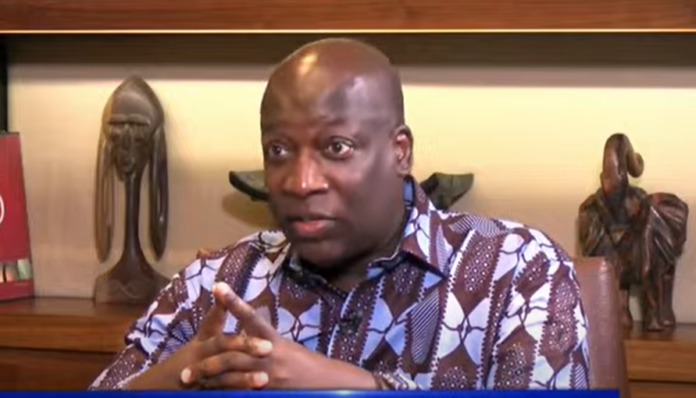Africa has seen a rise in coup d’état over the past few years, with many experts warning that there might be more to come.
Despite these warnings, many citizens believe that Ghana might not suffer this fate in its Fourth Republic, but a former Executive Vice President of Unilever, Yaw Nsarkoh disagrees.
In an interview on PM Express on JoyNews, Mr Nsarkoh, said that among other things, Ghana’s wide poverty gap and restiveness, are the same conditions registered in other coup countries prior to the military takeovers.
He added that democracy in many of these countries has not delivered the dividend that the people expected and this poses a threat to governance.
“Ghana cannot be immune (to coups)….we say in local parlance that when you see your neighbour’s beard on fire you should get a pail of water by the side. We must be thinking very carefully,” Mr Nsarkoh said.
He stated that the solution to preventing a takeover is not to implement draconian laws, limiting free speech or handcuffing the military.
Mr Nsarkoh said “The solution is that this democracy must deliver shared prosperity and shared dignity. That is really the way. Again, going back to Deng (Xiaoping), he said as prosperity went up in China, crime started to go down, especially violent crime. So that is the way forward in my view.”
But, he also believes that coups are not the solution to the problem of under-development and bad governance.
Mr Nsarkoh advised against people supporting military takeovers, stating that coups are a lazy approach for people who do not want to do the political work.
Africa’s history of coups in the last three years
A number of coups have been registered in Africa, especially across the West African region.
In August 2020, there was a coup in Mali and although constitutional rule was restored, the military took over power again nine months later in May 2021.
More than two years later, the junta is yet to hand over power. The military leaders have however promised to return the country to constitutional rule after elections scheduled for February 2024.
In September 2021, Guinea’s President Alpha Condé was overthrown and two years later the country is still under military rule.
In October 2021, General Abdel Fattah al-Burhane chased out the transitional civilian leaders, who were supposed to lead the country towards democracy after 30 years of Omar al-Bashir’s dictatorship.
In January 2022, the military in Burkina Faso, Ghana’s neighbouring country, overthrew President Roch Marc Christian Kaboré. A year and a half later, the military is still ruling but a presidential election has been scheduled for July 2024.
The military in Niger on July 26, 2023, announced the overthrow of President Mohamed Bazoum. General Abdourahamane Tiani is now the new leader. ECOWAS placed sanctions on the country and has threatened military action should all diplomatic talks fail.
But, the junta is insisting on a three-year transition plan despite ECOWAS’ call for a constitutional rule as soon as possible.
Lastly, on August 30, 2023, the army overthrew President Ali Bongo shortly after he was declared the winner of a disputed election.
Subsequently, the head of the military junta in Gabon, Gen Brice Oligui Nguema, was sworn into office as the interim president of the country.
ALSO READ:

